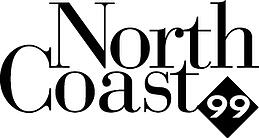 As much as many people hate interviewing for an HR or payroll position, the process and the questions are necessary. Ironically, as much as some people hate being asked questions, there is also a big contingent of HR professionals that hates asking them. Or they’re just awful at asking the right questions. They might not have the personality or training to feel comfortable with this all-important task.
As much as many people hate interviewing for an HR or payroll position, the process and the questions are necessary. Ironically, as much as some people hate being asked questions, there is also a big contingent of HR professionals that hates asking them. Or they’re just awful at asking the right questions. They might not have the personality or training to feel comfortable with this all-important task.
Compounding the challenge is HR professionals who don’t like asking interview questions often seek advice in the form of bad articles. Articles like “8 best interview questions to ask” give bad advice and make interviews more challenging.
These articles often have trendy questions that drive clicks, but how do you interpret answers from a question about a “spirit animal” or favorite color? How useful and accurate are those questions?
Taking the questions a step further, companies invest in assessments, yet rarely take the time to understand what the answers mean. The right assessments can be revealing, but you have to understand the results and know how you can act upon them.
Why are we shaping our interview questions and dialog as though we’re calculating the person’s ability to do the job based on their answer to unrelated or vague questions? These might be useful for assessing personality and ability to fit the company culture. But most times the answers to these questions won’t help uncover skills and experience.
Instead, try having a simple conversation. Yes, an actual conversation. As mind-blowing as that is, think about the last time you made a new friend. Did you run them through a string of questions, aimed at discovering their personality and whether you’ll blend well in the future? Chances are you asked open-ended questions that became a conversation. It’s that conversation that a relationship is built upon.
Of course, you don’t want to treat your hiring process as though you were seeking to gain a new friend. The point of having an honest, open dialog, is to not only discover their hidden talents or weaknesses but gain a deeper insight into their real personality. Chances are, you’ll be working closely with the individual in the future. Discover upfront if you can communicate with them.
Stop yourself the next time you’re tempted to ask, “describe yourself in three words.” Instead, try an open-ended question. Give the person the chance to elaborate and think creatively. For example, ask them what they did at the company and how it impacted the organization at-large. Be interested in discovering what they specialize in, how they have developed at their previous employers, and accomplishments they are proud of. People love talking about themselves and much can be discovered in 15 minutes of solid dialog. A short dialog can reveal much more than a longer session of rapid-fire questions.
Happy Hiring!
Recently Posted
Tag Cloud
Office

OH 44210
Connected:
Quick Links
For Employers
For Candidates
Your Source For HR & Payroll News
- Privacy Policy
- Terms & Conditions
- Site Map



